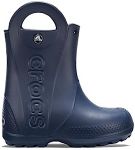We Use CookiesWe use cookies to enhance the security, performance,
functionality and for analytical and promotional activities. By continuing to browse this site you
are agreeing to our privacy policy
Best Toddler Rain Boots Wide Feet
From leading brands and best sellers available on the web.#2
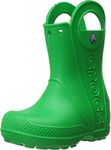
Crocs
Crocs Kid's Handle It Rain Boots, Grass Green, 8 M US Toddler
View Product
#3

Jan & Jul
JAN & JUL Toddler Boys Waterproof Snow Rain Boots (Grey Construction, Size 7 Toddlers)
View Product
#4
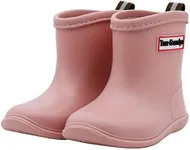
Sayyea
Toddler Rain Boots Baby Rain Boots Short rain boots for toddler Easy-on Lightweight and Waterproof
View Product
#5

Jan & Jul
JAN & JUL Toddler Easy-On Rain Boots for Boys and Girls (Yellow, Size 9 Toddler)
View Product
#6

HUNTER
HUNTER Unisex Child Original First Classic Rain Boot, Black, 11 Little Kid US
View Product
#7
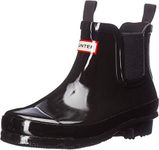
HUNTER
Hunter Kids Unisex Chelsea Gloss Rain Boots (Little Kid/Big Kid)
View Product
#8
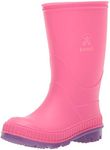
Kamik
Kamik Kids' Stomp Rain Boot, Pink, 7 M US Toddler
View Product
#9
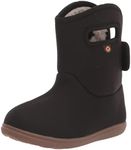
BOGS
BOGS Women's Kids Baby Ii Boot Rain, Solid - Black, 4 Toddler
View Product
Buying Guide for the Best Toddler Rain Boots Wide Feet
Choosing rain boots for toddlers, especially those with wide feet, can be a bit tricky. The right pair should keep little feet dry, comfortable, and supported during puddle-jumping adventures. It's important to focus on fit, comfort, and safety, as toddlers are still developing their walking skills. When shopping, always consider how easy the boots are to put on and take off, as well as how well they stay on during play. Remember, a good fit is more important than style or brand, and your child's comfort should always come first.Width and FitWidth and fit refer to how well the boots accommodate the shape of your toddler's feet, especially if they have wide feet. This is crucial because boots that are too narrow can cause discomfort, blisters, or even affect how your child walks. When looking at width, some boots are labeled as 'wide' or 'extra wide,' while others may simply have a roomier design. Try to look for boots that specifically mention being suitable for wide feet, or check if the toe box (the front part of the boot) looks spacious. If possible, have your child try them on with socks to ensure there's enough room to wiggle their toes without the boot slipping off. For wide feet, avoid boots that look narrow or have a tight ankle opening.
MaterialThe material of toddler rain boots affects both comfort and waterproofing. Most rain boots are made from rubber or synthetic materials that keep water out. However, some materials are stiffer than others, which can be uncomfortable for wide feet. Look for boots made from softer, flexible rubber or synthetic blends, as these will better accommodate wider feet and allow for more natural movement. If your child has sensitive skin, consider boots with a soft lining inside for extra comfort.
Ease of Putting On and Taking OffToddlers often struggle with putting on shoes, so features that make rain boots easy to slip on and off are important. Look for boots with wide openings, pull handles, or stretchy sides. These features help both you and your child get the boots on quickly, especially if your toddler has wide feet. Avoid boots with tight openings or complicated fastenings, as these can be frustrating and uncomfortable.
Traction and Sole DesignThe sole of the rain boot is important for safety, as it provides grip on wet surfaces. Look for boots with thick, non-slip soles that have deep treads or patterns. This helps prevent slipping when your toddler is running or walking on wet ground. For wide feet, make sure the sole is also wide enough to match the boot's upper, so your child's foot isn't squeezed from the sides.
Height of the BootRain boots come in different heights, from ankle to mid-calf. For toddlers, a mid-calf boot is usually best, as it keeps more water out but is still easy to walk in. If your child has wide calves as well as wide feet, look for boots with a wider shaft or adjustable openings. Avoid boots that are too tall or tight around the leg, as these can be uncomfortable and hard to move in.
Weight of the BootThe weight of the boot affects how easily your toddler can walk and play. Heavy boots can tire little legs quickly, especially for toddlers with wide feet who may already be working harder to move comfortably. Look for lightweight boots that still offer good protection and support. If possible, have your child walk around in the boots to see if they feel heavy or clunky.
